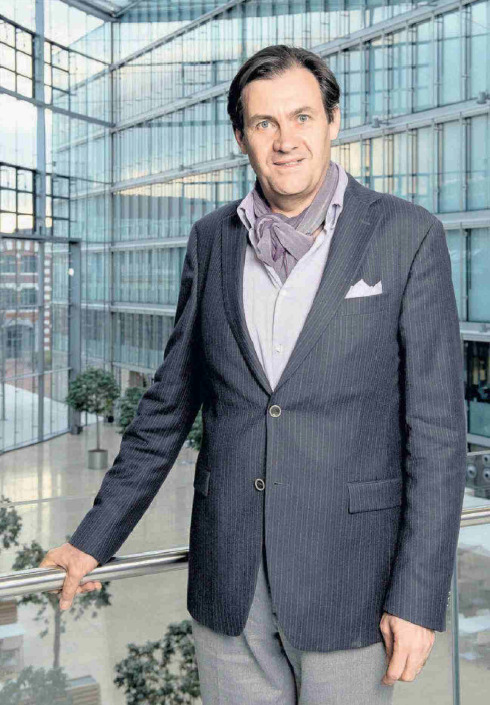As a player in the life sciences and medical technology industries and Switzerland’s Health Valley, and a close observer of their fortunes during the pandemic, Benoît Dubuis shares his analysis of the situation with us.

How is Switzerland’s Health Valley faring during the coronavirus crisis?
Given how diverse Health Valley’s partners are, it isn’t possible to give a one-size-fits-all answer. Some companies are suffering, naturally, while others are finding themselves thrust into the media spotlight – so rather like personalised medicine, we’re providing very tailored assistance to each of the ambassadors who turn to us for help. That’s as far as our specific activities are concerned… but the core of our thinking takes us beyond this challenging situation. Of course, we have to get through these extraordinary times, but above all we have to prepare for the ‘new now’. The pandemic has accelerated many transformations that were already under way and opened up whole new horizons. These include new therapeutic approaches, the spotlighting of sectors that might have been considered marginal or unsuited to our part of the world, and the transformation of demand. It has also created challenges for logistics and shortened the time scales for developing new solutions to issues that, just a year ago, didn’t even exist. This collective learning under intense time pressure has forced us to grow together, to understand the benefit of collaborations that are not only useful, but vital. To take just one example, the Business Continuity Resource programme led by Fondation Inartis and supported by the Geneva Chamber of Commerce, Industry and Services (CCIG), among others, has helped to identify key skills in order to support critical sectors impacted by high rates of staff absence caused by the epidemic.
We didn’t imagine that this anniversary year would turn out this way, but the situation we find ourselves in has highlighted the tremendous value of having a dense, interconnected ecosystem and the need to embed it even more firmly as an operational tool for our industry.
Are Swiss medtech operators playing an important role in this crisis by helping to meet market needs?
A key lesson that I will take away from all this is the need for proximity. For decades, globalisation and ‘fair-weather’ logistics have made us lose sight of the strategic importance of local stocks and production. Driven by a desire to optimise financial, material and human resources, the value chain has been largely decentralised, even virtualised. That all worked fine as long as the various elements were held together by the logistics web. Breaking the different threads led to supply shortages of essential components and therefore to production issues, delivery failures… and ultimately ‘industrial’ victims, or victims of the logistical shortcomings of just-in-time flows. So then there was talk of reshoring, local production, and reassessing what constitutes a ‘fair price’. Instead of hasty decisions, we favour in-depth reflection that will protect us from these disastrous impacts while not harming the cost-effectiveness of production.
Are you worried about the outcome of the framework agreement with the EU, which is a threat hanging over the Swiss medtech industry?
Prudence is the mother of all virtues. It should prompt us not only to pay attention but also to take action to guarantee optimal conditions for the development of our sector. Switzerland, because of its location in Europe, is never going to be immune from EU decisions that could impact its entire economy. A pragmatic approach will involve each player seeking solutions to the new challenges. Having strong and recognised umbrella organisations allows for concerted action that benefits our whole industry.
Do you share the view of EPFL professor Marcel Salathé on the need to accelerate Switzerland’s digital capacities to create new bridges between the worlds of science, technology, politics and citizens?
No one will deny that our country, our organisations, need to change. Our approach has always been to emphasise the urgency involved in order to act proactively, rather than reactively, to the challenges and above all to keep pace with the global revolutions that impact us. We have full confidence in the collective know-how and expertise that exists in Switzerland and believe in our ability to mobilise it. Understanding computer ‘code’ is no longer an option today. Programming languages govern our daily lives and it’s essential that we have access to these skills to be able to evolve in an increasingly virtualised world. Fondation Inartis has been supporting this process for several years by enabling motivated people to access professional training modules. One example is Le Wagon coding bootcamp, based at UniverCité in Renens, which trains people – many of whom are changing careers – in nine weeks. Another is 42 Lausanne, a new free school with no teachers which will train 200 computer scientists each year from next July, with initial training at Station R. These are all opportunities to help create tomorrow’s world.
